Design: Manufacturing / Pennsylvania
Pure craft
While many design firms have chosen to move their manufacturing abroad, some US studios are beginning to look a little closer to home. In Pennsylvania, it’s Amish and Mennonite craftspeople who are helping to bridge the gap, offering a sturdy presence in American wooden-furniture production and sticking to a traditional hands-on approach.
Dave Smoker, an Amish furniture maker, is intensely focused on staining a grand timber table. “I have always enjoyed art,” he says, sweeping his hair from his forehead and following the grain of the wood with long, meditative strokes of his brush. Smoker started work this morning at 05.45 and will not finish until 17.00, when he and his fellow Amish craftsmen will down tools and join their families at home for supper under the glow of battery-powered lights.
The Amish are an Anabaptist religious community – a Christian movement that traces its roots to the 16th century – that eschew cars in favour of traditional carts. Their homes are typically cut off from the electrical grid and they prefer to live apart from wider American society, content with farming, worshipping and dressing in the plain way that their ancestors did when they first landed on these shores from Switzerland and Germany some 300 years ago.
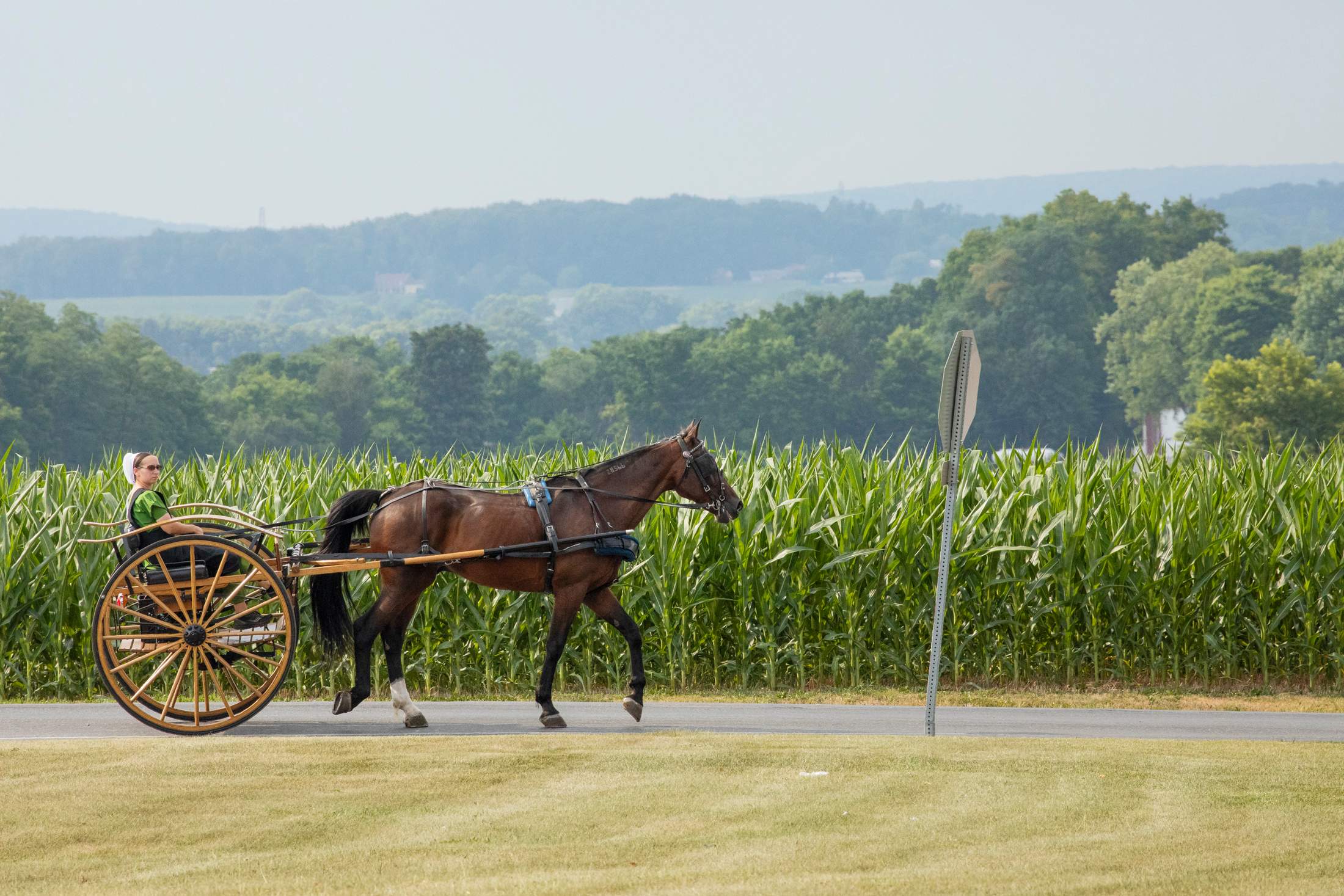
Yet the Amish and their less orthodox brethren, the Mennonites, are also some of the US’s best carpenters. They have made their own heavy-set utilitarian wares by hand for generations. Over the past few decades, Amish-made furniture has grown into a vast sector, with family-run factories and workshops dotted across the country and a whole industry dedicated to selling and shipping this work. As the owner of one US firm put it to monocle, “These guys just know wood.”

This knowledge has seen the Anabaptist’s woodworking and joinery skills increasingly sought out by contemporary design studios across the country. Among them is Los Angeles-based Kalon Studios. Its contemporary chairs and tables have a crisp, functionalist simplicity and are designed to be timeless and sturdy enough to be passed down the generations. “The Amish and Mennonites have deep expertise about how each piece is built, which other workshops don’t always have,” says Michaele Simmering, who co-founded Kalon Studios with her partner, Johannes Pauwen, in 2007. “In Los Angeles, there is a large manufacturing industry but it’s a business of one-offs,” says Pauwen. “You can’t do sustained production.”
The US market for collectable and limited-edition design is booming, with new fairs and galleries opening coast to coast. Yet the middle ground – aspirational but accessibly priced furniture – is dominated by a few brands. This is partly because the US’s woodworking industry shrank during the 2000s, as manufacturing moved to Asia. Much of what remains has either been swept up by larger firms or is specialist facilities producing goods that are too costly to make in large numbers. Amish and Mennonite makers strike the balance, helping emerging studios to scale up while keeping their products made locally. “It opened up our business,” says Simmering. “Our number-one struggle was finding reliable, high-quality, consistent furniture production.”
California modernism might seem a far-cry from the lives of these country folk but, in the making of furniture, common ground has been found. Getting on the books of Anabaptist factories, however, is not so easy. Kalon Studios had to go through a rigorous vetting process by community elders before the craftsmen would agree to work with them, covering everything from the liquidity of their business to their “moral compass”. Indeed, monocle’s main concern reporting this story was that we could get all the way to rural Pennsylvania only to find a deserted workshop. “They might all just go home to avoid you,” said Kalon Studios before we headed there. These pious communities try to steer clear of anything that could be considered prideful.
Nevertheless, after six months of making our case, monocle is in Pennsylvania and driving through an American pastoral of sunlit hay fields, porch swings and strawberry stands that line the side of the road. You know you’re entering Amish country because the electricity poles and billboards that feature on most US roads start to peter out. We soon pass tiny hamlets with German bakeries and Victorian houses. When we see a woman in an ankle-length dress and bonnet, watering the weedy flowers beside her post box and a teenager riding a bicycle with no gears (such mechanisms are deemed to be too hi-tech), we know that we’re in the right place.
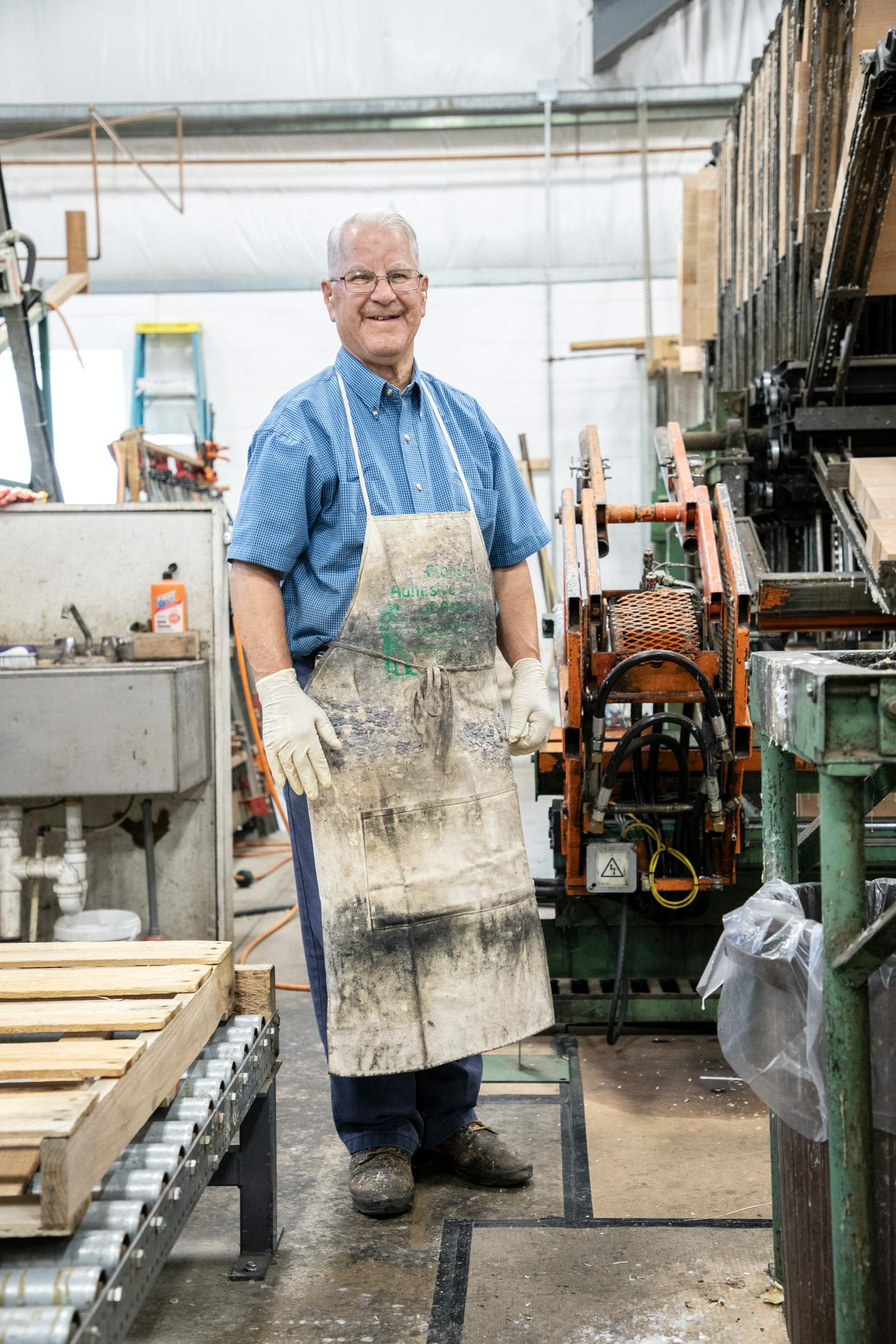
Kalon works with several workshops in the small Pennsylvanian town of Lebanon (pronounced “Lib’nan” locally) to build some of its chairs and stools. It is a real family operation, with Earl Zimmerman – grandfather to no less than 53 children – at the head of the factory we visit, which has just celebrated its 50th year in business. When monocle visits, a ripsaw is in action on the production floor, slicing through logs that will eventually be turned into seats. Raw slabs of Pennsylvania black-cherry wood from sustainably managed forests sit at one end of the workspace.
The Zimmermans are Mennonites who, unlike most Amish, own modern technology such as cnc woodcutters, have mobile phones and even run a website for the business. “But the computer is a tool and not a toy,” says Earl’s son Nate, who walks us through operations on the factory floor. He explains that such technology must be used warily and only if it makes the community’s work more efficient, therefore allowing it to continue its way of life.
Old-fashioned, hands-on skills are preferable and apprenticeships are a key part of the culture. Most children start learning a trade – whether that’s farming or joinery – while still in school. Nate’s son Trevor, aged 13 and on holidays, is at his father’s side. “We say that there’s a lot more caught than taught here,” says Nate. “Skills come from watching how the work is done.” Young Trevor has already adopted the unofficial uniform of the Mennonite carpenter: tucked-in shirt, pencils in his top pocket and a tape measure clipped to his belt.
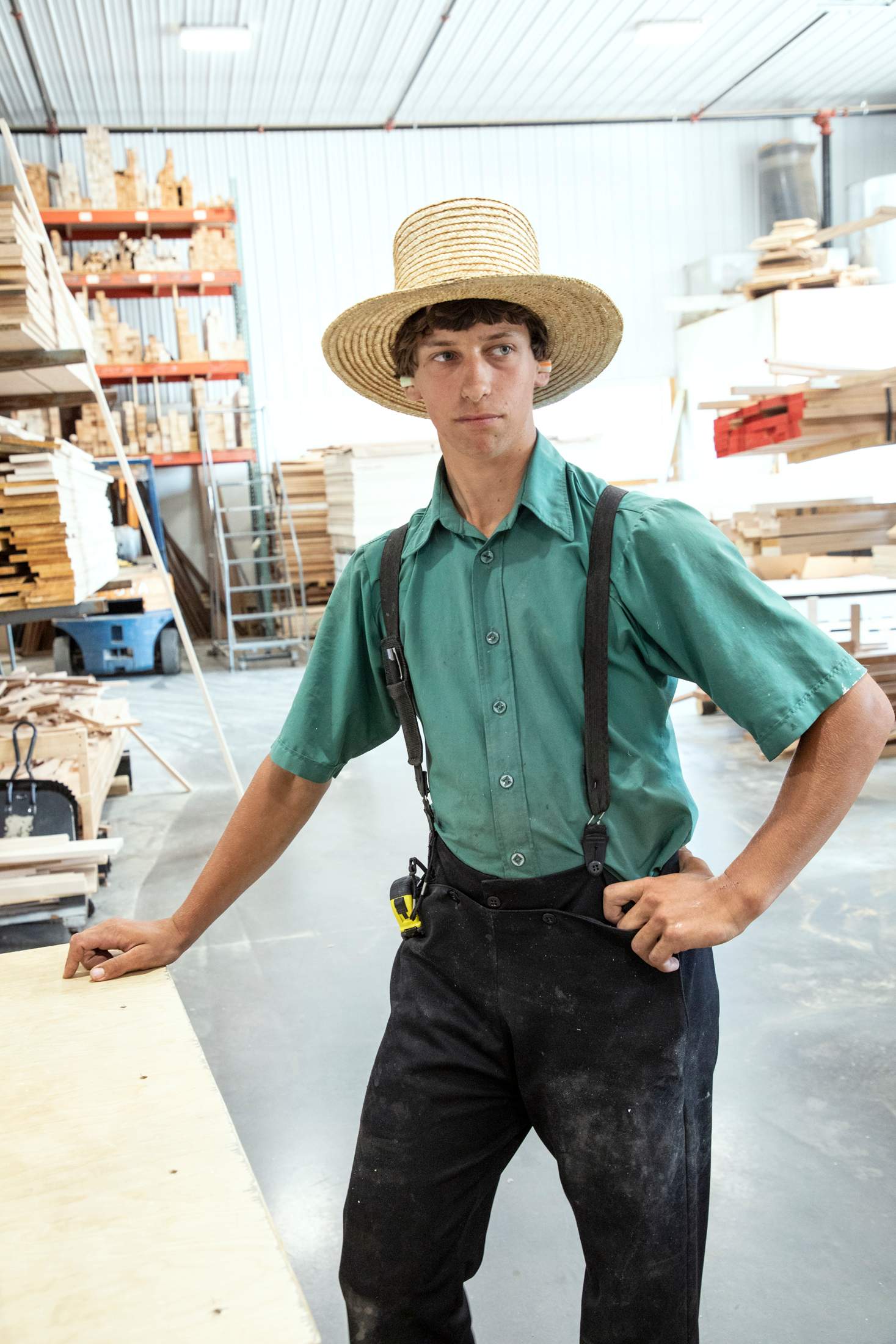
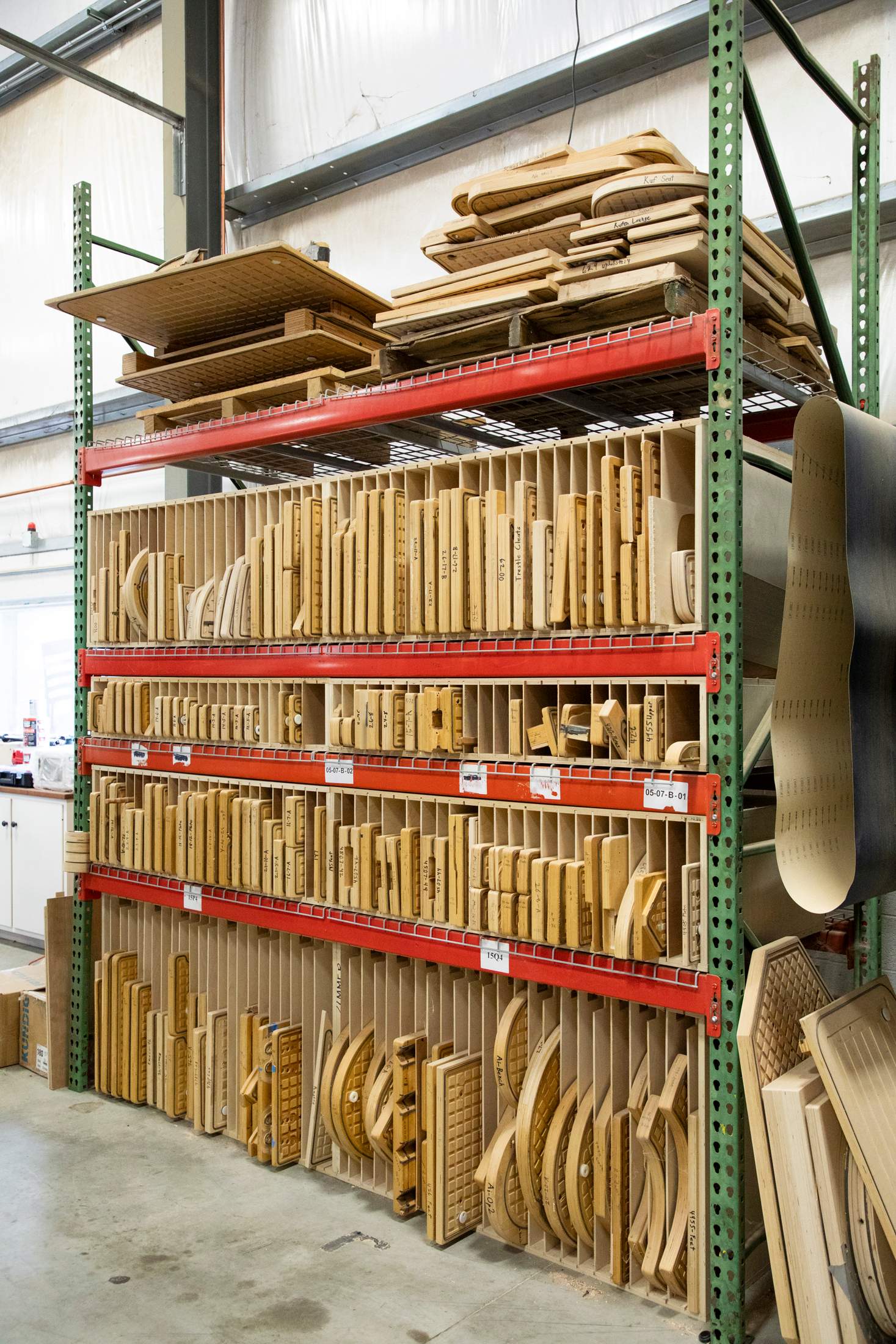
For Kalon Studios, the Zimmermans are not just fabricators but collaborators, offering suggestions of how to hone their designs for greater longevity. The brand’s Bough stool was inspired by the sashimono woodworking tradition, which uses complex, concealed joinery to give it strength. This was developed by Kalon Studios over the course of two years. “It fits together really snugly,” says Pauwen, admiring one of the products. “There’s beauty in these joints.”
The scale and capacity of these firms have been steadily growing too. Mennonite factories in the US are now competing with European manufacturers for contracts, especially for restaurant-chain fit-outs with large orders. The Zimmermans have a second facility on the other side of Lebanon, which makes 350 chairs every week. “We have a reputation for longevity, which serves us well,” says Wendel Zimmerman, who runs the factory with his three brothers and maintains a trusted workforce of smartly dressed carpenters with exacting standards. Notable design brands now produce their work with Zimmerman, though many prefer to remain discreet about it – in part because competition for craftsmen is so high. monocle’s recent collaboration with Collect Studio on a series of chopping boards and bowls was made here.
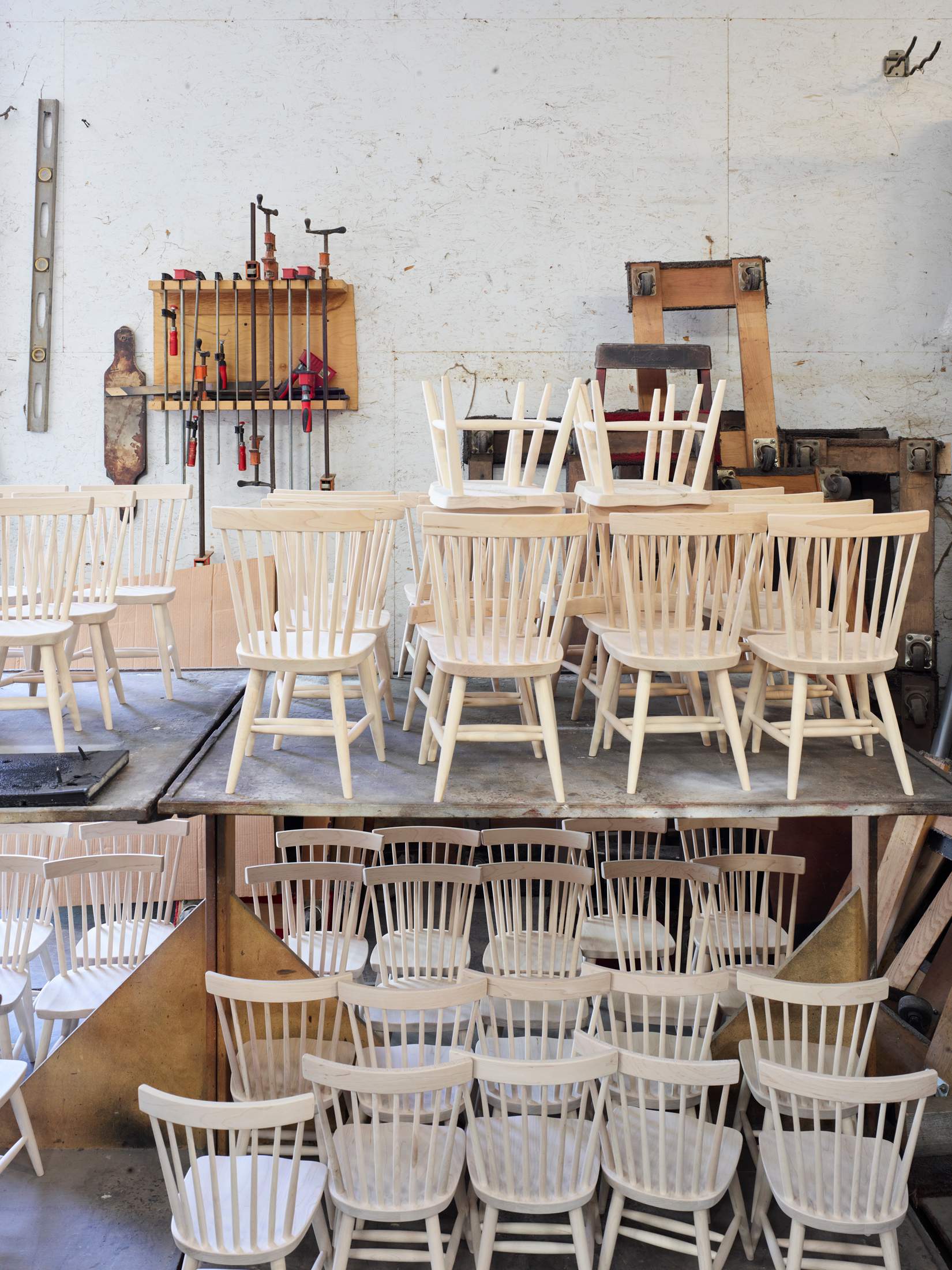
Wendel says that Zimmerman is receiving more requests from the design world but the company remains selective about who it works with, prioritising brands with repeat orders and what Wendel calls “good values”. “We will end up taking on more high-end projects in the future,” he says. “I hear from larger manufacturers that this has become a significant amount of their output.”
Case in point is US heritage brand Emeco, which has been working with Mennonite factories for 15 years. Best known for its all-aluminium Navy chair, Emeco joined forces with British designer Michael Young in 2010 to create its first-ever piece of wooden furniture, which was produced at Mennonite and Amish factories in Pennsylvania. “Finding these craftsmen was so important,” says Gregg Buchbinder, Emeco’s owner. “The Navy chair is made to last for 150 years, so the question was always how we could make a wooden chair with that kind of longevity too.” Today many of Emeco’s wooden products are machined in Mennonite workshops. “A lot of makers have exported their production overseas but having complete control and oversight of the process means that we can communicate to the market why ours is a better product.”
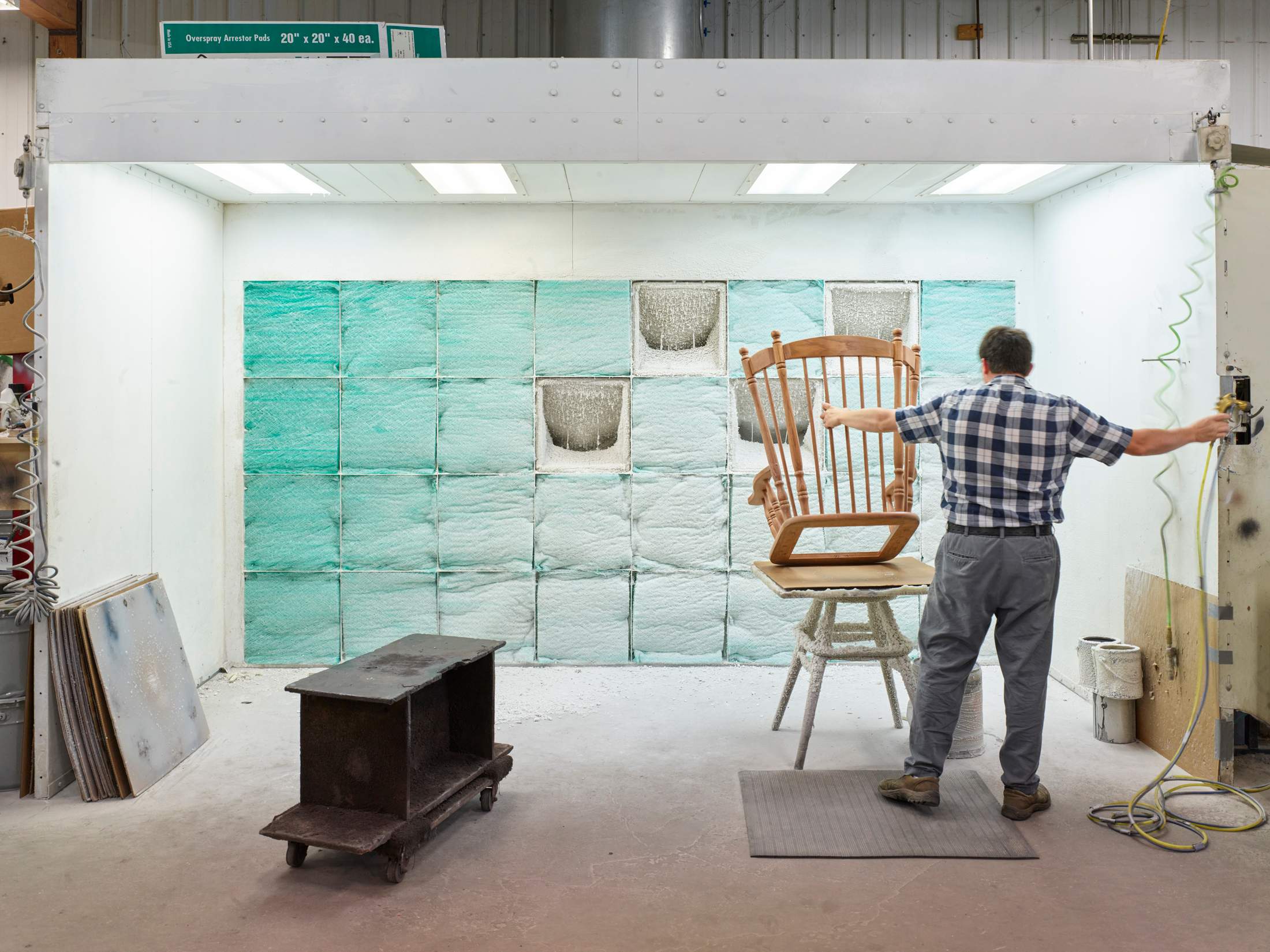
This is a concern for many emerging US design firms that want the way they make their products to be in keeping with the ethos of their brand. That can be in terms of sustainability (US-made products, while more expensive, don’t have to be shipped from the other side of the world) or a level of finishing. With regards to the latter, brands are at the mercy of the manufacturers that they partner with and, as a result, designs can often be watered down to fit the capabilities of a factory. Mennonite and Amish factories are helping to bridge that gap. At another family-run, Mennonite-owned workshop in Lebanon with a row of buggies lined up out front, monocle finds Amish men in boater hats and braces working silently and diligently on a batch of dressers for Kalon Studios. “Our single strongest asset is our work ethic,” says the factory’s owner, Kevin Martin. “This is our contribution to society: our work is what we pay for the space we take up.”
With Mennonite factories, monocle is told, you pay a little more for the service but can be assured that the work will be done on time – and that you aren’t getting ripped off. A popular psalm daubed on houses and mailboxes all over Amish country sets the tone: “The Lord does abhor the deceitful.” —


